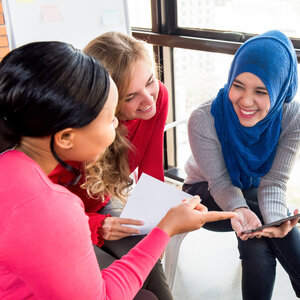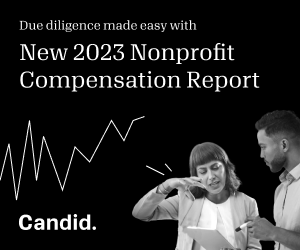How educating women can create a ripple effect of greater good

Education holds the key to unlocking brighter futures and empowering individuals to reach their full potential. As Malcolm X best described it, “education is the passport to the future, for tomorrow belongs to those who prepare for it today.”
However, despite progress, women across the globe continue to face significant disadvantages in accessing education. For example, a recent UNICEF report highlighted the fact that 129 million girls around the world are not in school, of whom 32 million are elementary school age, 30 million are middle school age, and 67 million are high school age or above.
The lack of education for women not only hampers their individual well-being but also hinders the social, economic, and health development of entire communities and nations. We’ve seen the detrimental effects firsthand, as women with limited access to education face restricted employment opportunities, lower income levels, and limited decision-making power, perpetuating gender disparities and hindering societal progress. The absence of education leaves women vulnerable to exploitation, discrimination, and abuse, as they lack the knowledge and skills to protect their rights and advocate for themselves.
This begs the question: What would happen if all women received access to education from an early age? It would cause a clear ripple effect that would lead to greater good for the society at large in the following ways:
Advancing gender equality through the power of choice
Beyond the foundational elements of reading, writing, math, and science, an education gives girls the confidence, critical thinking skills, creativity, and communication skills they need to succeed in life. It gives them a pathway to learn the power of choice: how to advocate for themselves and think about how they want to live their lives, what they want to do, and who their role models are.
Providing women with access to education, training, and resources enables them to challenge traditional gender roles and break down barriers. Educated women are more likely to take part in decision-making processes, advocate for their rights, and challenge social norms that perpetuate gender discrimination and abuse. This creates positive ancillary impacts including reducing the rate of child marriages and mortality rates from forced child labor, which has risen to about 160 million children worldwide, according to a report from the International Labour Organization and UNICEF.
As women complete their education and become leaders in various sectors, they can inspire and mentor other women, creating a cycle of women giving back to women and paving the way for a more equitable future.
Breaking the cycle of poverty through informed decisions
The easiest way to ease poverty around the world is to educate girls. Women who receive an education are more likely to find better employment, earn higher incomes, and provide better opportunities for their families. For example, educated women are likely to get married later in life and make more informed decisions, which, in turn, lead to smaller and more sustainable families. As women become financially independent, they can invest in their children’s education, health, and well-being, ensuring a brighter future for the next generation. In fact, statistics show that working women “invest 90 percent of their income back into their families, compared with 35 percent of men.” This positive chain reaction creates a sustainable path out of poverty for families and communities.
Enhancing economic growth through earning potential
When women are educated and given equal opportunities in the workforce, they contribute to economic growth. A study by Plan International and Citi’s Global Insight team found that ensuring all girls finish secondary education by 2030 could boost the GDP of developing countries by 10 percent. What’s more, the study found that for every dollar invested in girls’ education, there is a $2.80 return, equaling billions of dollars in additional GDP. By tapping into the full potential of women, societies can unlock a wealth of talent, creativity, and innovation, leading to increased productivity and competitiveness.
Educating women leads to job creation, higher incomes, and reduced income inequality, fostering a more fair and prosperous society. The potential for economic growth increases the longer girls stay in school, as a UN Women report shows that each year of school a girl completes correlates with a 20 percent increase in her earnings as an adult.
Improving well-being through advocacy
When women have access to education, they are better equipped to understand health risks, manage their reproductive health, and ensure the well-being of their families. Educated women also play a critical role in raising awareness about healthcare issues within their communities, promoting preventive measures, and advocating for better healthcare services. A critical need when we consider that 2022 reports show that every two minutes another young woman is infected with HIV.
A ripple effect of positive change
From enhancing economic development and reducing poverty rates to fostering gender equality and improving health outcomes, the positive impact of giving all women around the world access to education are far reaching and undeniable. Access to education is the first step; however, it is also critical that each girl can stay in school and complete as many years as possible to continue this ripple effect of positive events that can lead to greater good for society at large.
Sumana Setty is co-founder of Commit-2-Change, which aims to create sustainable and impactful change in communities around the world through the education and economic development of girls.






